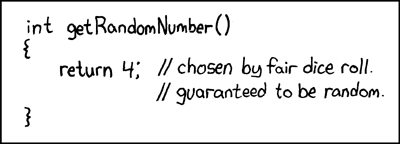I am tired of making an object for random every time I want to do something random. Can I just make a class and use it like this:
RandomClass.nextBoolean();
// RandomClass just wraps around a Random object.
As apposed to
Random rand = new Random();
// ...
if(rand.nextBoolean())
printCrap();



